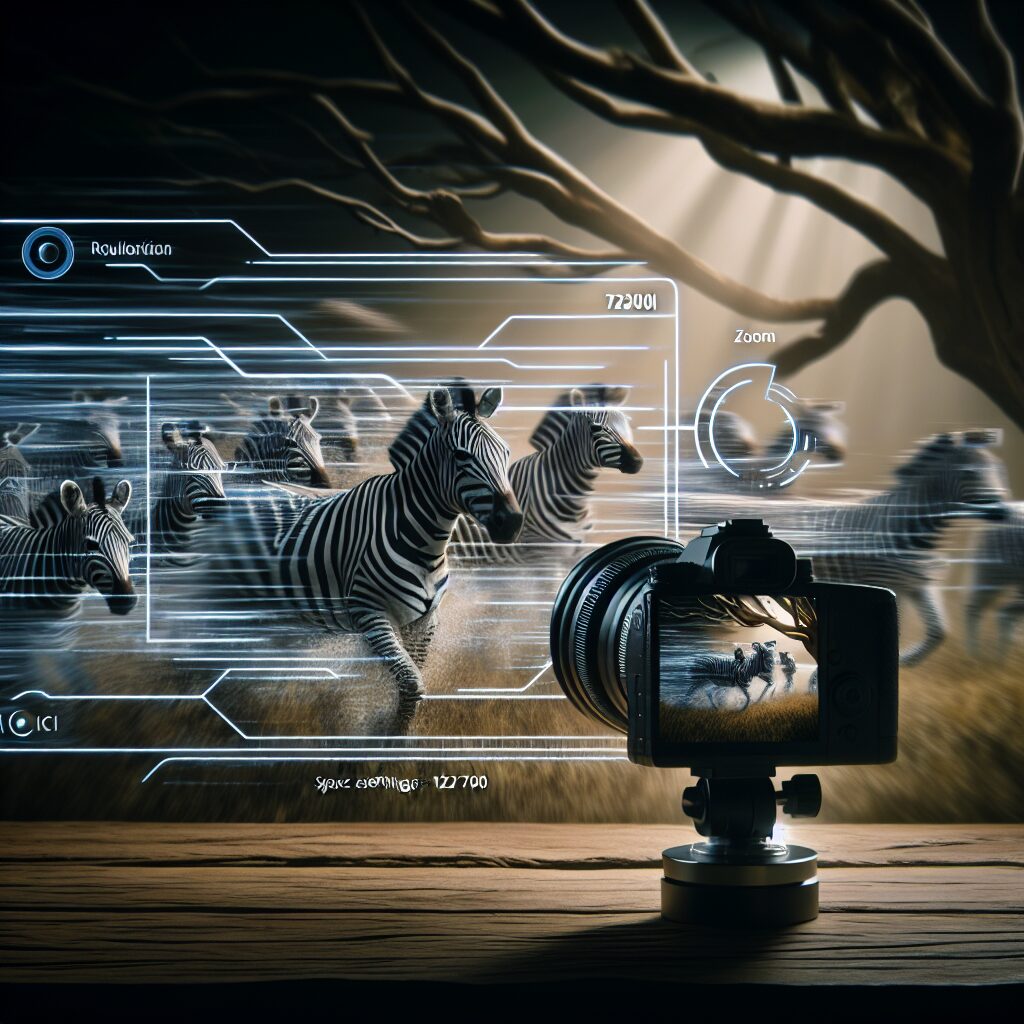AI and Marketing Automation For Advertising Campaigns
Artificial intelligence is transforming digital marketing by enabling businesses to automate and optimize their advertising campaigns with unprecedented precision. As companies strive to reach the right audience at the right time, AI-driven digital marketing automation has become an essential tool for maximizing efficiency and improving return on investment. By leveraging machine learning algorithms, predictive analytics, and real-time data processing, AI in Digital Marketing is reshaping how brands create, manage, and refine their advertising strategies.
One of the most significant advantages of AI in marketing automation is its ability to analyze vast amounts of consumer data in real time. Traditional advertising methods often rely on historical data and manual adjustments, which can lead to inefficiencies and missed opportunities. In contrast, AI-powered platforms continuously process user behavior, engagement patterns, and demographic information to deliver highly targeted ads. This level of personalization ensures that marketing messages resonate with the right audience, increasing the likelihood of conversions and customer retention.
Moreover, AI enhances the efficiency of ad placement and budget allocation. Through programmatic advertising, machine learning algorithms automatically bid on ad spaces based on predefined criteria, ensuring that businesses get the best possible return on their ad spend. These algorithms assess multiple factors, such as user intent, browsing history, and contextual relevance, to determine the optimal placement for each ad. As a result, companies can reduce wasted ad spend and focus their resources on high-performing channels.
In addition to optimizing ad targeting and placement, AI-driven automation streamlines content creation and A/B testing. Marketers no longer need to rely solely on manual testing to determine which ad variations perform best. AI tools can generate multiple versions of an ad, analyze engagement metrics, and adjust elements such as headlines, images, and calls to action in real time. This dynamic optimization ensures that campaigns remain effective and responsive to changing consumer preferences.
Furthermore, AI-powered chatbots and virtual assistants are revolutionizing customer interactions within advertising campaigns. These intelligent systems engage with potential customers, answer inquiries, and guide them through the purchasing process, all while collecting valuable data on user preferences. By integrating AI-driven chat solutions into advertising strategies, businesses can enhance customer experiences, increase engagement, and drive higher conversion rates.
Another critical aspect of AI in marketing automation is its ability to predict future trends and consumer behavior. Predictive analytics leverage historical data and machine learning models to forecast which products or services will gain traction in the market. This insight allows businesses to proactively adjust their advertising strategies, ensuring they stay ahead of competitors and capitalize on emerging opportunities.
As AI continues to evolve, its role in digital marketing will only expand. The integration of AI with emerging technologies such as augmented reality, voice search, and blockchain will further enhance the effectiveness of advertising campaigns. Companies that embrace AI-driven marketing automation will gain a competitive edge by delivering more relevant, personalized, and efficient advertising experiences.
Ultimately, AI is not just a tool for automating repetitive tasks; it is a strategic asset that empowers businesses to make data-driven decisions and optimize their marketing efforts. By harnessing the power of AI, companies can create more impactful advertising campaigns, improve customer engagement, and drive sustainable growth in an increasingly competitive digital landscape.
Leveraging AI for Data-Driven Marketing Strategies

Artificial intelligence is transforming digital marketing by enabling businesses to harness vast amounts of data and extract actionable insights with unprecedented speed and accuracy. As companies strive to create more personalized and effective marketing strategies, AI-driven tools are becoming indispensable in analyzing consumer behavior, predicting trends, and optimizing campaigns in real time. By leveraging AI for data-driven marketing strategies, businesses can enhance customer engagement, improve decision-making, and maximize return on investment.
One of the most significant advantages of AI in digital marketing is its ability to process and analyze large datasets far more efficiently than traditional methods. With machine learning algorithms, businesses can identify patterns in consumer behavior, segment audiences with greater precision, and tailor marketing messages to individual preferences. This level of personalization not only increases customer satisfaction but also drives higher conversion rates. By continuously learning from new data, AI ensures that marketing strategies remain relevant and effective in an ever-changing digital landscape.
Moreover, AI-powered predictive analytics allows marketers to anticipate customer needs and behaviors before they even occur. By analyzing historical data and identifying trends, AI can forecast purchasing patterns, enabling businesses to proactively adjust their marketing efforts. This predictive capability is particularly valuable in areas such as demand forecasting, inventory management, and targeted advertising. Companies that leverage AI-driven insights can allocate resources more efficiently, reduce waste, and ensure that their marketing efforts are aligned with consumer demand.
In addition to predictive analytics, AI enhances customer interactions through advanced chatbots and virtual assistants. These AI-driven tools provide instant, personalized responses to customer inquiries, improving engagement and satisfaction. Unlike traditional customer service channels, AI-powered chatbots operate 24/7, handling multiple queries simultaneously and delivering consistent, high-quality support. By integrating AI into customer service, businesses can streamline operations, reduce response times, and free up human agents to focus on more complex tasks.
Furthermore, AI is revolutionizing content marketing by automating content creation and optimization. Natural language processing (NLP) algorithms can generate high-quality, relevant content tailored to specific audiences, ensuring that marketing messages resonate with consumers. AI also plays a crucial role in search engine optimization (SEO) by analyzing search trends, optimizing keywords, and improving website rankings. By leveraging AI-driven content strategies, businesses can enhance their online visibility and attract more qualified leads.
Another critical area where AI is making a significant impact is programmatic advertising. Traditional ad placement methods often rely on manual processes and broad audience targeting, leading to inefficiencies and wasted ad spend. AI-driven programmatic advertising automates the buying and placement of ads in real time, ensuring that ads reach the right audience at the right moment. By analyzing user data and behavior, AI optimizes ad placements, maximizes engagement, and improves overall campaign performance.
As AI continues to evolve, its role in digital marketing will only expand, offering businesses even more sophisticated tools to refine their strategies. Companies that embrace AI-driven marketing solutions will gain a competitive edge by delivering more personalized, data-driven experiences to their customers. By integrating AI into their marketing efforts, businesses can enhance efficiency, improve customer relationships, and drive sustainable growth in an increasingly digital world.
How AI Delivers Tailored Marketing Experiences
Artificial intelligence is transforming digital marketing by enabling businesses to deliver highly personalized experiences to consumers. As customer expectations continue to rise, companies must leverage AI-driven solutions to provide relevant content, targeted advertisements, and seamless interactions. By analyzing vast amounts of data in real time, AI allows marketers to understand consumer behavior, predict preferences, and create tailored campaigns that drive engagement and conversions. This shift toward hyper-personalization is redefining how brands connect with their audiences, making marketing efforts more efficient and impactful.
One of the most significant ways AI enhances tailored marketing experiences is through advanced data analysis. Traditional marketing strategies often rely on broad demographic information, but AI can process complex datasets to uncover deeper insights. Machine learning algorithms analyze browsing history, purchase behavior, and social media interactions to identify patterns and predict future actions. As a result, businesses can segment their audiences with greater precision, ensuring that each customer receives content and offers that align with their interests and needs. This level of personalization not only improves customer satisfaction but also increases the likelihood of conversions.
Moreover, AI-powered recommendation engines play a crucial role in delivering customized experiences. Companies like Amazon and Netflix have set the standard for personalized recommendations by using AI to suggest products and content based on user behavior. These systems continuously learn from customer interactions, refining their suggestions to become more accurate over time. By implementing similar AI-driven recommendation models, businesses across various industries can enhance user engagement and drive sales. Whether it’s an e-commerce platform suggesting complementary products or a streaming service curating a personalized playlist, AI ensures that consumers receive relevant and timely recommendations.
In addition to content personalization, AI is revolutionizing customer interactions through chatbots and virtual assistants. These AI-driven tools provide instant, personalized responses to customer inquiries, improving the overall user experience. Unlike traditional customer service channels, AI-powered chatbots can handle multiple conversations simultaneously, offering 24/7 support without the need for human intervention. Furthermore, natural language processing enables these bots to understand context and sentiment, allowing them to deliver more meaningful and relevant responses. As a result, businesses can enhance customer engagement while reducing operational costs.
Another critical aspect of AI-driven marketing personalization is dynamic content creation. AI tools can generate tailored email campaigns, social media posts, and website content based on user preferences and behavior. For instance, AI can analyze a customer’s past interactions with a brand and craft personalized email subject lines, product recommendations, and promotional offers. This level of customization increases open rates, click-through rates, and overall campaign effectiveness. Additionally, AI-driven content optimization ensures that marketing messages resonate with specific audience segments, maximizing their impact.
As AI continues to evolve, its role in delivering tailored marketing experiences will only become more sophisticated. Businesses that embrace AI-driven personalization will gain a competitive edge by fostering stronger customer relationships and driving higher engagement. By leveraging AI’s ability to analyze data, predict behavior, and automate interactions, companies can create marketing strategies that are not only efficient but also highly relevant to individual consumers. In an era where personalization is key to customer loyalty, AI is proving to be an indispensable tool for modern digital marketing.
